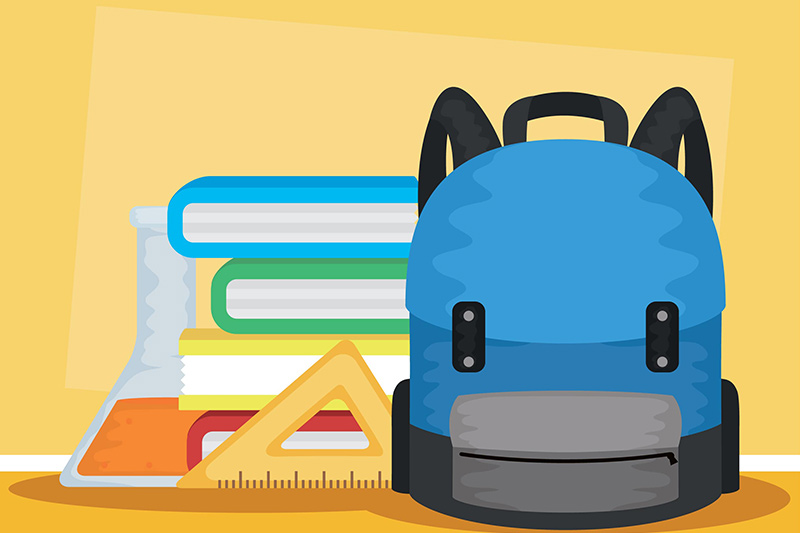Spring is almost here. With the arrival of the vernal equinox comes flowers, rain, longer days…and standardized test season. Whether it’s for state educational requirements or taking a stab at college entrance exams such as the ACT and SAT, mastering the content matter and strategies can prove challenging under the easiest of circumstances. When students with attention disorders are trying to buckle down and prepare for their end-year or university admissions exams, the end goal can seem all the more daunting.
Studying for standardized tests while having an attention disorder is not an insurmountable hurdle, however. We asked experts in education on tips for how to manage test time when managing concentration is a challenge in and of itself.
1. Studying for standardized tests is different from everyday homework.

Homework is designed to teach and reinforce what’s taught in the classroom: It’s a way for educators to have students practice skills, interpret daily lessons, and build and retain information. Preparing for standardized tests, on the other hand, is about learning strategies on how to maximize test scores, rather than assess course progress.
“Each standardized test covers a limited, finite set of concepts, though the manner in which those concepts are presented, such as the phrasing of the questions, is often totally foreign to students who are used to the more straightforward questions that typically appear on school tests and homework,” says Alexis Peterson, the founder of Alexis Prep, a tutoring and test preparation company based in Houston. “Every standardized test has its own set of rules, and clear patterns emerge in the questions and answers. Familiarizing students with these rules and patterns can absolutely lead to better standardized test scores.”
Part of the original rationale for colleges and universities using standardized test scores as criteria for admission was a desire to even the playing field for applicants of all backgrounds. Along these lines, many standardized test authors and publishers maintain that preparation is not necessary, as the exams measure reasoning gained during the course of secondary school study. At the end of the day, however, the reality is that students usually do at least some sort of test preparation, whether it’s going to a specialized tutor or test prep course or sitting down online and doing practice questions on the ACT or SAT’s own websites.
2. When it comes to standardized test preparation with attention disorders, knowing the game is half the battle.

When running through any practice tests, a useful exercise for any student with an attention disorder, is to figure out and take note about what in the exam presents a particular challenge.
“If it’s about taking too long to answer the questions, for example, then pacing is something the student can work on,” says Maria Stein-Marrison, co-founder and director of the Manitou School, an independent pre-K – 8 school in Cold Spring, New York.
Another common standardized testing difficulty for students with attention disorders is focusing on reading the directions and questions correctly. Often the questions might be worded in such a way that missing a word or two could change the interpretation.
“Many students with attention disorders tend to pick the ‘decoy’ answer because they are not focusing on the details of what the question is asking,” Stein-Marrison continues.
3. Be aware of how your attention disorder changes how you retain information.

Another consideration, Peterson points out, is that people with attention disorders sometimes absorb information in ways that differ from their peers. This is okay—and being aware of this fact can help the student take steps in advance of test day in terms of how to approach studying and test-taking. The key here is to begin test prep early so that you can get a sense of what works for you and your study style. (Pro tip: This is also a useful tactic for once you get into college!)
The definition of “early” here can vary from person to person; but suffice it to say, cracking open the test prep book a week ahead of time probably isn’t going to be enough time to get a sense of what sections might bog you down come test day.
Practicing early will help reduce stress and help you get a clear sense of where you need to focus. For example, people who find themselves rushing through sections might benefit from strategies to help slow themselves down.
“Saying ‘read the question, then read the answer choices, then read the question again before choosing the answer’ can be helpful here,” says Stein-Marrison.
To get through longer reading passages, students with attention disorders might benefit from adopting mindfulness techniques to prevent mental exhaustion. Stein-Marrison suggests looking briefly away from the test and taking a few deep breaths, or rolling shoulders a few times can help test takers de-stress and refocus.
4. Look into accommodations especially for students with attention disorders.

Students with disabilities — anxiety and attention disorders most certainly included — should know that college entrance exams have provisions in place to help them, and should be sure to apply for these in advance of the test. These provisions often include being able to take the test in question without any time limit.
“Applying for and taking advantage of these accommodations is incredibly important in order for students with learning disabilities and difficulties to achieve scores that are truly reflective of their actual ability,” says Peterson.
She stresses that parents and students need not be concerned that any such tests will be flagged; in fact, quite the contrary, as any such practice has been deemed discriminatory.
In essence, when it comes to taking standardized tests with an attention disorder, perhaps the biggest takeaway is “know thyself.” Awareness of how you or your child studies — and the resources available — can help you get through the test and earn a score that shows the true depth of reasoning. With standardized tests, strategy is key. For test-takers with attention disorders, focus can be part of that strategy.







